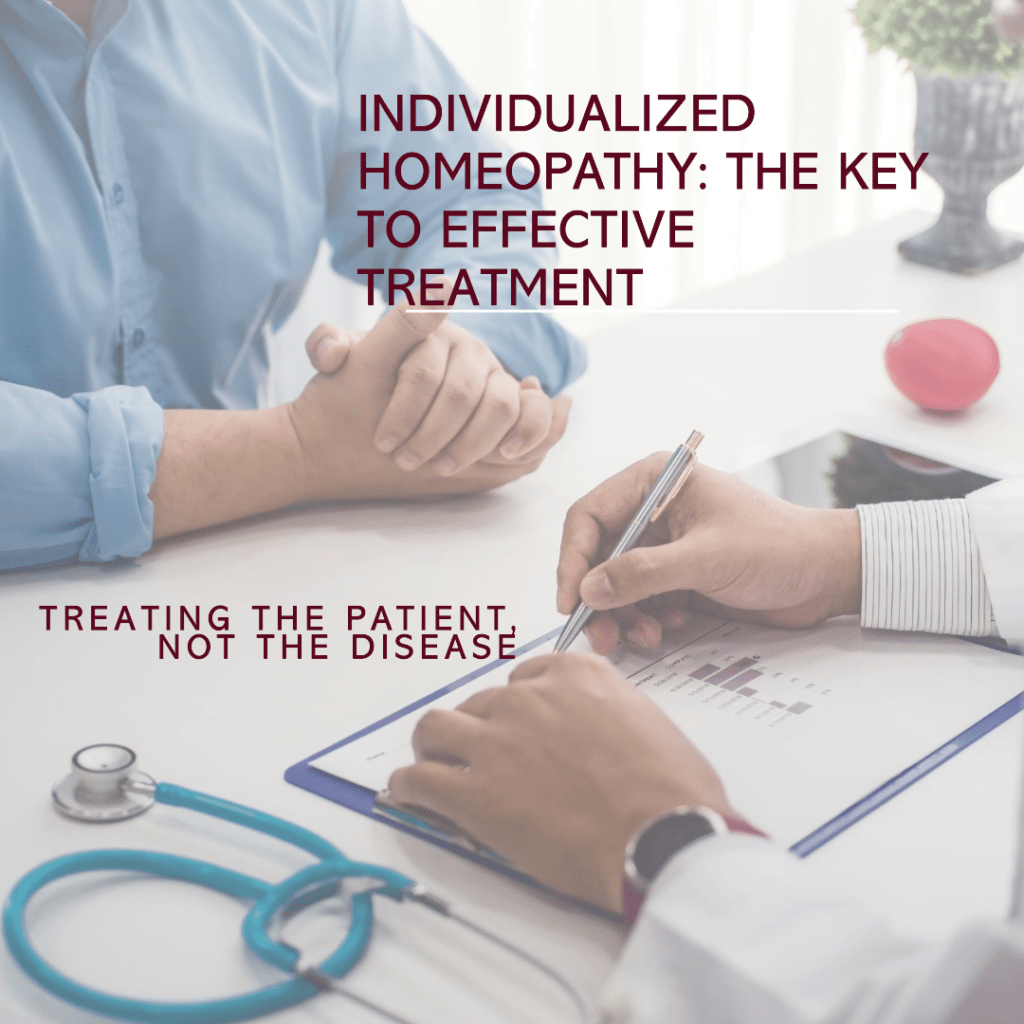Ever thinked, "Is homeopathy good or bad for you"? Discover the truth about homeopathy's impact on your well-being. Uncover the benefits and potential concerns to make an informed decision about the efficacy and safety of homeopathic practices for your health.

Table of Contents
Introduction to Homeopathy
Understanding the Basics of Homeopathy
Homeopathy is a holistic system of medicine that originated in the late 18th century. It is based on the principle of "like cures like," which means that a substance that can cause symptoms in a healthy person can also stimulate the body's healing mechanisms to alleviate similar symptoms in a sick person. This concept is known as the Law of Similars.
Historical Background of Homeopathic Medicine
Homeopathy was founded by Samuel Hahnemann, a German physician, who was dissatisfied with the harsh medical practices of his time. He developed the principles and philosophy of homeopathy as an alternative approach to healing. Over the years, homeopathy gained popularity and spread to different parts of the world.
How Homeopathic Remedies are Prepared
Homeopathic remedies are prepared through a process called potentization. This involves serial trituration and/or succussion (vigorous shaking) of a substance. The potentization process is repeated multiple times to create different potencies, each with its own dynamic properties. The final product, contains a highly dynamic potency of the original substance.
Principles and Philosophy of Homeopathy
Principle of "Like Cures Like"
The core principle of homeopathy is based on the concept that a substance that produces symptoms in a healthy person can eventually cure those same symptoms in a sick individual. For example, if someone is experiencing symptoms of a runny nose and watery eyes, a homeopathic remedy made from Allium cepa (onion) could be prescribed because onion can elicit similar symptoms in a healthy person.
Importance of Individualization in Homeopathic Treatment
In homeopathy, each person is considered unique, and their symptoms and mental, emotional, and physical characteristics are taken into account when selecting a remedy. This individualized approach aims to treat the person as a whole, rather than merely addressing the symptoms. By considering the person's overall constitution, homeopathy seeks to stimulate the body's self-healing mechanisms.
The Concept of "Vital Force" and Its Role in Homeopathic Healing
Homeopathy believes in the presence of a vital force or energy that animates the body and maintains its overall balance. When this vital force is disrupted or imbalanced, it leads to the manifestation of symptoms. Homeopathic remedies are believed to stimulate the vital force and restore harmony within the body, allowing for natural healing to occur.
Scientific Evidence and Effectiveness
Prominent Research on Homeopathy
Scientific studies have been conducted to evaluate the efficacy of homeopathy. While some studies have shown positive results, there is still ongoing debate and controversy surrounding the interpretation of this evidence. Several systematic reviews and meta-analyses have been conducted, some suggesting that homeopathy has little to no clinical benefit beyond a placebo effect, while others support its effectiveness in certain conditions.
Nature of the Evidence and Its Limitations
It is important to note that the quality and quantity of research on homeopathy vary. Some studies demonstrate positive outcomes, while others show no significant effects. The interpretation of the evidence is further complicated by differences in study design, sample size, and the choice of outcome measures.
Since an aeroplane can't be tested on a raolway track, so dynamic potencies can't be tested as the crude drugs are tested, because one acts on the dynamic plane where as the other acts on the material plane. One acts on the patient where as the others action is only tested partially.
So, homeopathy is good or bad can be only determined if the research is based on the indivisualization of the patients, not on the basis of the name of the so-called disease.

Debate Over the Placebo Effect in Homeopathic Treatments
One common criticism of homeopathy is that any perceived benefits could simply be due to the placebo effect. The placebo effect occurs when a person experiences an improvement in symptoms after receiving an inactive substance or treatment, merely because they believe it to be effective.
While the placebo effect can play a role in the effectiveness of any treatment, proponents of homeopathy argue that its benefits go beyond placebo and are based on the individualized approach and stimulation of the vital force.
Most of the patient come to homoeopathy after being disappointed from othere genere of medicines. They had more belief in that system, thats whya they preferred to go there in the begining. If the belief is the cause of improvement, then why it didn't occur during taking that so-called modern medicine?
The practical truth is that, patient had no belief in homoeopathy in the beginig because of being disappointed from the treatments taken previously. They came to homoeopathy for just giving it a try. The result created the belief later.
Evidence-Based Effectiveness in Specific Cases
Despite the ongoing debate, some studies have shown promising results for homeopathy in certain conditions. For example, a Cochrane review found that homeopathic remedies may provide some relief for individuals with allergies. Similarly, a study published in the European Journal of Pediatrics reported positive outcomes in children with attention-deficit/hyperactivity disorder (ADHD) when treated with individualized homeopathic remedies.
The greatest evidence however is the continuous growth of the homoeopathy market. In this era of disbelief, only results can produce a growth in the market.
We all know that investment in marketing of the rival is very very high and has no comparision with the investment in the marketing of homoeopathy. Most of the big websites are filled with the biased articles defaming homoeopathy. But homoeopathy os growing because of the truth that it gives permanent results, not only supressing ailments for the more complexities following.
Potential Side Effects and Risks Associated with Homeopathic Remedies
Homeopathic remedies are generally considered safe when used as directed. Due to the highly diluted nature of the remedies, they are believed to have minimal side effects. However, it is important to note that any substance, even when highly diluted, can potentially cause adverse reactions in sensitive individuals. It is recommended to consult a qualified homeopath or healthcare professional before using homeopathic remedies, especially in conjunction with any existing medications or treatments.
Criticism and Skepticism of Homeopathy
Lack of Scientific Plausibility
Critics argue that the principles of homeopathy are not compatible with current scientific understanding. The extreme dilutions used in homeopathic remedies often exceed Avogadro's limit, raising questions about the presence of any active ingredient. Furthermore, the notion of like curing like challenges conventional scientific principles and lacks a mechanistic explanation that aligns with established medical knowledge.
But we must remember that so-called estabilished knowledes became outdated when the real truth became discovered. Only a fool can say that like cures like is unscientific. Also, the vital force is not visible by any intrument, but it doesn't mean it doesn't exist. When it doesn't exist inside the material body, no medicine is effective then.
Many thing are not visible by naked eyes or any advanced instrument, does it mean they doesn't exist? You can't see your mind with a microscope, so mind doesn't exist! It's a myth that mind exists!
The materialistic science has no conscience, so it may be dangerous. Only material is not existing in the universe. The immaterial can't be seen but can be experienced.
Science has not reached it completion. Further advancements will reveal more hidden secrets. For now proving of the drugs on healthy human beings are the greatest proof that dynamic potencies act and the uncountable cured patients are the proof that the vital force reacts to the dynamic potencies.
Regulatory Challenges and Concerns
The regulatory status of homeopathy varies across different countries. In some nations, such as India and Germany, homeopathy enjoys official recognition and is integrated into the national healthcare system. However, other countries, including the United States and the United Kingdom, have taken a more skeptical stance and regulate homeopathic products separately from conventional medicines.
Personal Experiences and Placebo Effect
Anecdotal Evidence in Favor of Homeopathy
Many many many individuals have shared personal testimonies and stories that support the efficacy of homeopathy in their own lives. These anecdotes often highlight positive experiences, including symptom relief, improved overall well-being, and a sense of personal empowerment. While such individual experiences may depend on the expertise of the practicing homoeopath. Not homeopathy is good or bad, but the homeopath is.
Most of the existing homoeopath don't understand homoeopathy themselves. Homoeopathy never fails, a homoeopath fails.
Psychological Factors Influencing Perceived Benefits of Homeopathic Treatments
Sceptics say that the psychological factors associated with homeopathic treatments, such as the individualized approach and the therapeutic relationship between the homeopath and the patient, can contribute to perceived benefits. The sense of being heard, understood, and actively participating in the healing process can have positive psychological effects that impact overall well-being, regardless of the physiological effects of the remedies themselves.
It may be true in some context, but they forget that the psyche is itself dynamic, so only dynamic potencies can affect it.
Understanding Biases and Conflicts of Interest in Homeopathic Research
Uncovering biases and conflicts of interest in homeopathic research is important for interpreting the evidence objectively. Biases, such as publication bias or selective reporting, may skew the available data. Furthermore, financial conflicts of interest can influence the design, conduct, and interpretation of studies. Taking these factors into account enables a more balanced evaluation of the research findings.
Frequently Asked Questions
Can homeopathy be used alongside conventional medicine?
No. Not at all! Both have just oposite actions upon the patient economy. One is supressing while the other is curing. The u003ca href=u0022https://homoeonet.com/dr-herings-3-laws-of-model-cure/u0022 target=u0022_blanku0022 rel=u0022noreferrer noopeneru0022u003eshifting of the diseaseu003c/au003e by homoeopathic treatment is from more vital organ to the less vital organ, where as in allopathy it's just opposite.u003cbru003eThe name itself suggests that u003ca href=u0022https://homoeonet.com/can-allopathy-and-homeopathy-treatment-go-together/u0022 target=u0022_blanku0022 rel=u0022noreferrer noopeneru0022u003ehomoeopathy and allopathyu003c/au003e are opposite. Read more on this topic u003ca href=u0022https://homoeonet.com/can-allopathy-and-homeopathy-treatment-go-together/u0022 target=u0022_blanku0022 rel=u0022noreferrer noopeneru0022u003ehereu003c/au003e.
Is homeopathy safe for children and pregnant women?
Homeopathy is generally considered safe for children and pregnant women when used appropriately. However, it is advisable to consult a u003ca href=u0022https://homoeonet.com/verified-homeopathic-doctors/u0022 target=u0022_blanku0022 rel=u0022noreferrer noopeneru0022u003equalified homoeopathu003c/au003e for advice and guidance specific to individual circumstances.
How can patients ensure the quality of homeopathic products?
Patients should look for reputable manufacturers and products that adhere to quality control standards. Consulting a u003ca href=u0022https://homoeonet.com/verified-homeopathic-doctors/u0022 target=u0022_blanku0022 rel=u0022noreferrer noopeneru0022u003equalified homeopathu003c/au003e or can provide additional guidance on selecting high-quality homeopathic products.
What are the disadvantages of homeopathy?
Previously supressed ailments coming out during the homoeopathic treatment is considered the biggest disadvantage of homeopathy, but actually it is an advantage, because supressed ailments can cause more complexities if not eliminated.
What are the risks of homeopathy?
The only risk is finding a good homeopath is very difficult. People don't know the u003ca href=u0022https://homoeonet.com/#criteria-of-being-a-good-homeopathu0022 target=u0022_blanku0022 rel=u0022noreferrer noopeneru0022u003eCriteria of Being a Good Homeopathu003c/au003e, even many practitioners don't know this. So find a u003ca href=u0022https://homoeonet.com/verified-homeopathic-doctors/u0022 target=u0022_blanku0022 rel=u0022noreferrer noopeneru0022u003equalified homeopathu003c/au003e before starting treatment. Otherwise there are many dangerous practitioners who use dynamic potencies unjudiciously.
Is homeopathy completely safe?
Homoeopathy is safe only in the hands of a good homoeopath. Otherwise not.
Is Ayurveda or Homeopathy better?
Both are great and based on similar principles, but both system lacking in practitioners who understanf the principles.
Concluding Note: Is homeopathy good or bad for you?
Homeopathy is good or bad depends upon the single factor, that is your homoeopath is good or bad. See Criteria of Being a Good Homeopath and then chose a good homeopath. Therafter the worry is not yours.

